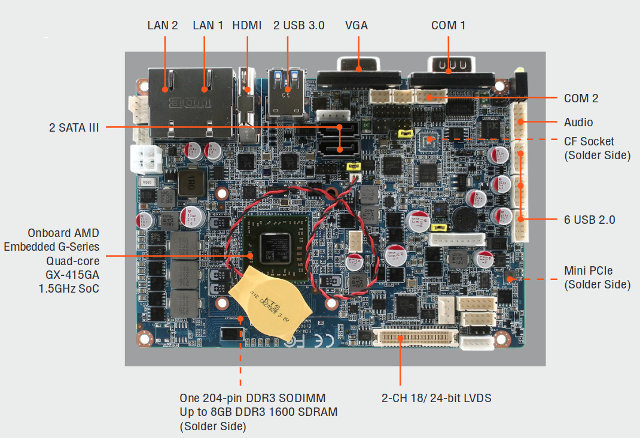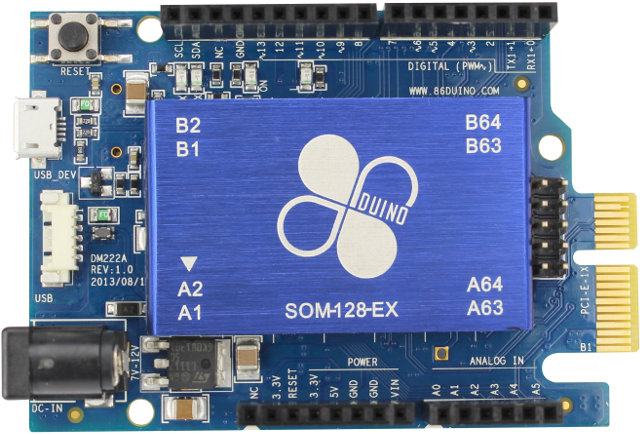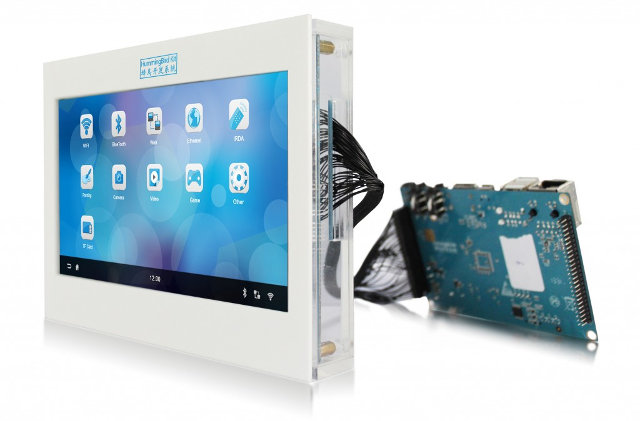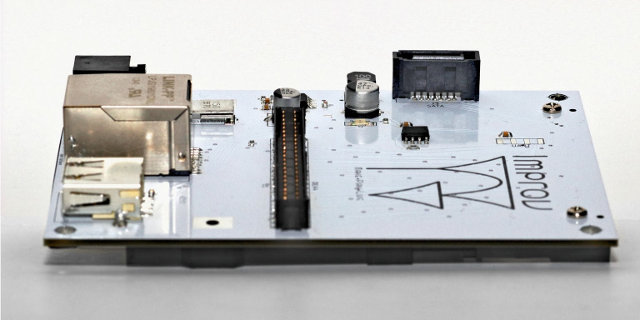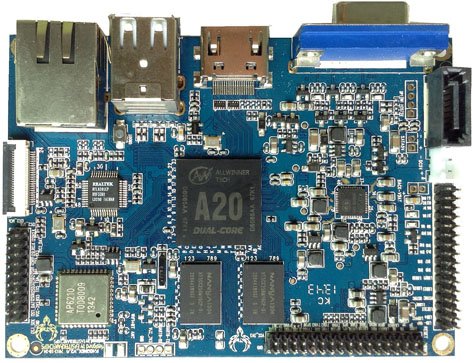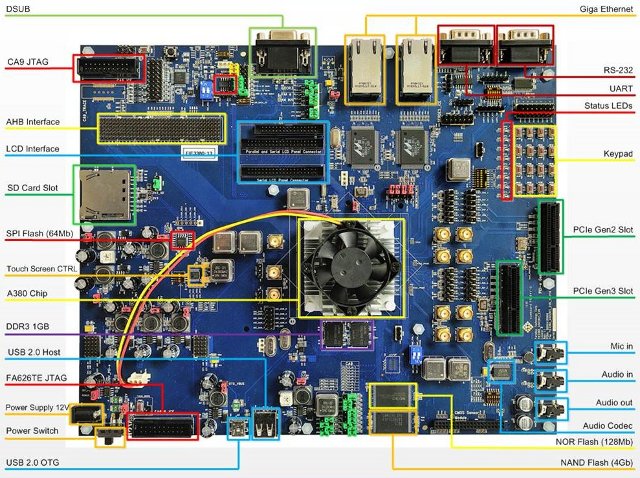This release includes Linux Kernel 3.12 (baseline), Linux Kernel 3.10.20 (LSK), Android 4.4 for the first time, and Ubuntu Linaro 13.11 (still based on Raring). Beside Android Kit Kat support, other noticeable updates include initial documentation for LAVA, and further work on ARMv8 support. Here are the highlights of this release: Android Engineering Android 64-/32-bit updated to 4.4 KitKat Fastboot/UEFI – Created Fastboot app design Builds and Baselines Linaro Stable Kernel 3.10.20-2013.11 released – Includes an updated big.LITTLE MP patchset Linux Linaro 3.12-2013.11 released: gator version 5.16 (same version as in 13.10 release) updated big-LITTLE-pmu, iks, iks-cpufreq, and interactive-gov-updates topics from ARM LT updated basic Capri board support from Broadcom LT (generic phy support for USB, watchdog, updated bcm_defconfig) updated big endian topic updated topic to support K3V2 board from Hisilicon LT updated Versatile Express patches from ARM LT vexpress64 support (updated FVP Base model files, added support for FVP […]
Avalue ECM-KA SBC Powered by AMD Embedded G-Series Dual and Quad Core SoCs
Avalue Technology, a Taiwanese company manufacturing industrial and embedded single board computer, has recently announced a 3.5” SBC (single board computer) micro module, labeled ECM-KA, powered by AMD Embedded G-Series SoCs. The board will feature GX-415GA Quad-core SoC by default, with GX-217GA (1.6GHz), and GX-210HA (1.0GHz) dual core SoCs as options. The board targets the embedded market with applications such as industrial controls & automation, gaming (e.g. slot machine, aracade), thin clients, retail/ digital signage, SMB storage server, surveillance, medical, communication, entertainment, and data acquisition. ECM-KA Specifications: SoC – AMD Embedded G-Series Quad-core GX-415GA @ 1.5GHz SoC with on-chip Radeon HD 8400E GPU (Optional GX-217GA 1.6GHz/ GX-210HA 1.0GHz) System Memory – One 204-pin DDR3 SODIMM Socket Supports Up to 8GB DDR3 1600 SDRAM Storage – 2x SATA III and SSD One CompactFlash Type I/II Socket (Support InnoDisk CF-SATA). Expansion – 1x Mini PCIe (mSATA Supported) I/O MIO – 1 x […]
$39 86Duino ZERO is an x86 Arduino Compatible Board that Supports DOS, Windows, and Linux
Intel Gallileo Development Board with a Intel Quark processor, and Arduino software and hardware, now gets some competition with DM&P Electronics’ 86Duino ZERO board powered by the company’s Vortex86EX processor and 128MB RAM, that is said to support DOS, Windows, and Linux. 86Duino ZERO Specifications: Processor – DM&P Vortex86EX 32-bit x86 processor @ 300MHz System Memory – 128MB DDR3 Storage – 8MB SPI flash, and microSD card slot Connectivity – 10/100M Ethernet (at the back of the board, not RJ45) USB – USB host connector, micro USB port for development Arduino Leonardo compatible headers Misc – Reset button, PCIE bus Power Supply – DC-IN 7 to 12V, or via microUSB port. The board is comprised of a daughter board (DM-222) and a System-on-Module (SoM) either called DM-205 and or Vortex86EX SOM-128-EX which the following specs (some of which are not accessible in 86Duino Zero): Processor – Vortex86EX @ 300MHz System […]
Merrii Hummingbird Development Kit Features AllWinner A20 Processor, and an Optional 7″ Touchscreen Display
And yet another AllWinner A20 development platform shows up in my news stream in about 24 hours. Merrii Technology, a Shenzhen based electronics design house, has showed off their Hummingbird Development Kit to ARMDevices.net. The development board comes with 1GB RAM, 4GB NAND Flash, Gigabit Ethernet, SATA, HDMI output, and more. There’s also an optional 7″ capacitive touch screen display for the board. The company explains the kit can be used to develop application such as media players, game consoles, IPTV, automotive products (GPS & IVI), robots, servers, surveillance products, and home automation systems. Here are the board specifications: SoC – AllWinner A20 dual ARM Cortex-A7 core @ 1 GHz with ARM Mali400-MP2 GPU System Memory – 1GB DDR3 (2x 4Gb 16bits DDR3) Storage – 4GB MLC 64bit ECC NAND Flash (Hynix H27UBG8T2A), SATA II connectors, and micro SD card slot (Up to 32GB) Connectivity – Wifi & Bluetooth (two-in-one […]
Improv Open Hardware Platform Features EOMA68-A20 CPU Card Powered by AllWinner A20 SoC
After seeing a countdown clock on makeplaylive.com a few days ago, I was expecting the Plasma Active, Linux based Vivaldi Tablet to come up, but instead Improv, an open hardware platform, has just been launched. It features the long awaited EOMA68 CPU card with AllWinner A20 dual core ARM Cortex A7 processor, together with a “feature board”, and is now available for pre-order for $75, with shipping expecting in January. It’s only available in North America and Europe for now. Improv specifications: EOMA68-A20 CPU board: SoC – AllWinner A20 dual core ARM Cortex-A7 @ 1 GHz with Mali-400MP2 GPU System Memory – 1GB DDR2 Storage – 4GB NAND flash Video – micro HDMI (video + audio), RGB/TTL pins USB – Micro USB OTG + USB 2.0 host pins Networking – 10/100M Ethernet Other buses – I2C, 8 GPIO, UART0 Weight – Under 40 grams Feature board: Storage – 32K EEPROM, […]
$69 PhoenixA20 Pico-ITX Board Features Allwinner A20 SoC
Anichips Technology, a Shenzhen based electronics design company, has just announced PhoenixA20, a pico-ITX board features AllWinner A20 dual core Cortex A20 SoC with 1GB, 4GB Flash, HDMI and VGA output, Ethernet, and built-in Wi-fi and Bluetooth. PhoenixA20 specifications: SoC- AllWinner A20 dual ARM Cortex-A7 processor @ 1.2 GHz with ARM Mali-400MP2 GPU System Memory – 1GB DDR3 Storage – 4GB NAND Flash, micro SD card slot (up to 32GB), and SATA Video output – HDMI and VGA connectors. LVDS, RGB and CVBS signals are accessible via the expansion headers Connectivity – 10/100M Ethernet, Wi-Fi & Bluetooth 4.0 (via AP6210) USB – 2x USB 2.0 host ports Camera Interface – CSI Expansion headers – 3x UART, 2x I2C, 1×I2S, 1xCVBS, 4x TVIN, 2x Line IN, 1x SPDIF, 2x PWM, 2x LRADC, 2x FMIN, 1xHeadphone, 4xTVOUT, MIC, IR, TP The board supports Android 4.2.2, and Linux 3.3 with source code for […]
Faraday Technology SoCreative! IV Kit Facilitates Custom SoC Design and Software Implementation
Faraday Technology has unveiled “SoCreative! IV”, a SoC development kit based on Faraday A380 SoC featuring a dual-core ARM Cortex A9 processor, an ARMv5-compliant core developed by the company, and a high speed expansion bus for interfacing with FPGA daughtercards. A380 SoC has been designed for cloud infrastructure market, including networking, computing, and storage applications. The company has not listed the specifications, but here’s what I could derived from the picture above, and the info found on Linux Gizmos article. SoC – Farady A380 dual core Cortex A9 @ 1GHz, with ARMv5-compliant FA626TE RISC processor @ 500MHz, and 512MB L2 cache. BGA package (31x31mm), 40nm process. System Memory – 1GB DDR3-1600 RAM Storage – 4Gb NAND Flash (512MB), 128Mb of NOR flash, 64Mb of SPI flash, I2C EEPROM, and SD Card slot. Video Output – DSUB for 24-bit LCD I/F up to 1280×1280 Audio – Mic In, Audio In/Out, Audio […]
$49 Safeplug Tor Router Let You Browse the Net Anonymously
With the recent NSA leaks, more and more people have been be aware that there’s virtually no privacy online, especially with regards to their own or foreign governments. So people have looked into using secure emails, or find way to protect themselves against eavesdropping from criminals, advertisers, and politicians. For example, instructions have been posted to convert the Raspberry Pi into a Tor router, called Onion Pi, in order to hide your IP address, and browse the web anonymously from any of your devices. If you’re not the tinkerer type, and/or would just like to get something that works out of the box cheaply, people behind the Pogoplug, have introduced the Safeplug, a Tor enabled router, that sells for just $49, plus $9 shipping to the US. It does not seem to be available for the rest of the world. There’s absolutely no information about the hardware used, but it […]



